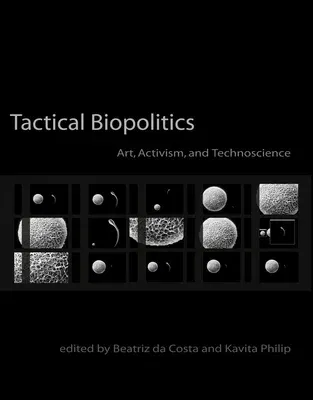Scientists, scholars, and artists consider the political significance
of recent advances in the biological sciences.
Popular culture in this "biological century" seems to feed on
proliferating fears, anxieties, and hopes around the life sciences at a
time when such basic concepts as scientific truth, race and gender
identity, and the human itself are destabilized in the public eye.
Tactical Biopolitics suggests that the political challenges at the
intersection of life, science, and art are best addressed through a
combination of artistic intervention, critical theorizing, and
reflective practices. Transcending disciplinary boundaries,
contributions to this volume focus on the political significance of
recent advances in the biological sciences and explore the possibility
of public participation in scientific discourse, drawing on research and
practice in art, biology, critical theory, anthropology, and cultural
studies. After framing the subject in terms of both biology and art,
Tactical Biopolitics discusses such topics as race and genetics (with
contributions from leading biologists Richard Lewontin and Richard
Levins); feminist bioscience; the politics of scientific expertise;
bioart and the public sphere (with an essay by artist Claire Pentecost);
activism and public health (with an essay by Treatment Action Group
co-founder Mark Harrington); biosecurity after 9/11 (with essays by
artists' collective Critical Art Ensemble and anthropologist Paul
Rabinow); and human-animal interaction (with a framing essay by cultural
theorist Donna Haraway).
**Contributors
**Gaymon Bennett, Larry Carbone, Karen Cardozo, Gary Cass, Beatriz da
Costa, Oron Catts, Gabriella Coleman, Critical Art Ensemble, Gwen
D'Arcangelis, Troy Duster, Donna Haraway, Mark Harrington, Jens Hauser,
Kathy High, Fatimah Jackson, Gwyneth Jones, Jonathan King, Richard
Levins, Richard Lewontin, Rachel Mayeri, Sherie McDonald, Claire
Pentecost, Kavita Philip, Paul Rabinow, Banu Subramanian, subRosa, Abha
Sur, Samir Sur, Jacqueline Stevens, Eugene Thacker, Paul Vanouse, Ionat
Zurr

